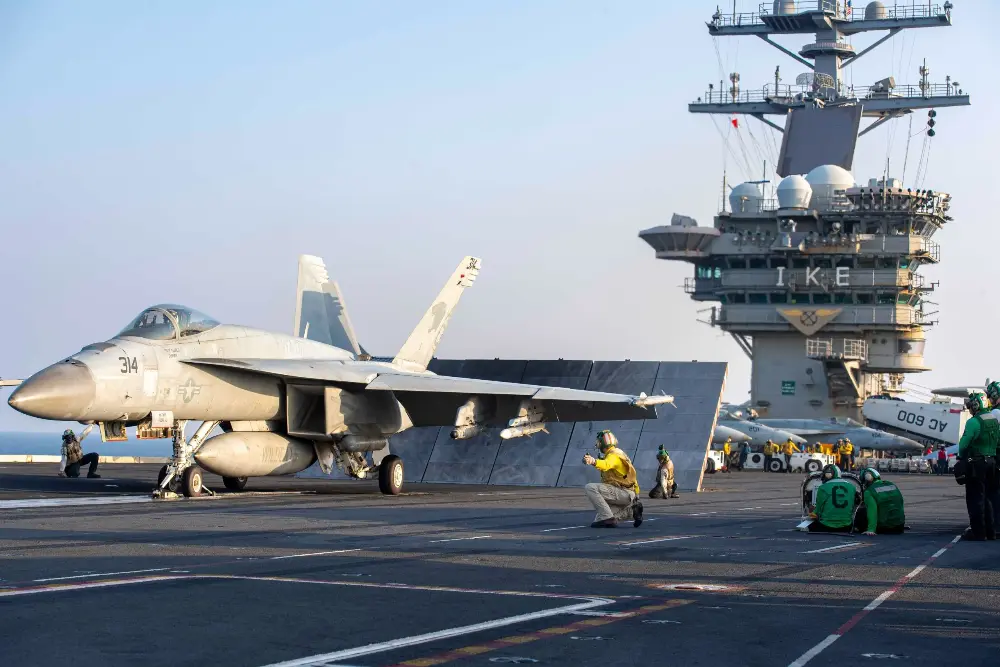
Although the U.S. claims that the Prosperity Guardian will live up to its name and bring stability to the region through its ability to “disrupt and degrade the Houthis’ capabilities to endanger mariners and threaten global trade in one of world’s most critical waterways”, it raises questions amid attempts of some countries to resolve the humanitarian and political crisis through military intervention. Those attempts have come up empty since the very beginning of the civil war in Yemen. So why would be of any effect today? There is no answer to this question because the U.S. has stated that this step is “necessary”.
In addition to the above, the coalition justified the operation by the need to ensure freedom of navigation in the Red Sea and through the Bab el-Mandeb strait. However, this argument in favor of carrying out the operation does not stand up to criticism. The Bab el-Mandeb strait accounts for about 14% of global trade traffic, but insurance costs for shipping and logistics companies are too high to sail through the Suez Canal.
Moreover, the very fact of forging such an international coalition raises questions of international law, since those actions were not mandated by the UN as is required. Although it would seem, the organization exists just to address this kind of issues. Nevertheless, Western countries ignore international laws in this case, thus compromising once again the UN’s effectiveness.
Surprisingly, no nation with access to the Red Sea wished to take part in the military operation. On the contrary, the countries have voiced concerns saying that this would only make the situation worse rather than solve it. Egypt, which receives 10% of its foreign exchange income from the Suez Canal, has also commented the events in the region: “The dangerous developments taking place in the southern Red Sea region and Yemen…with the risks of the regional conflict’s expansion due to the ongoing Israeli attack in the Gaza Strip”. Qatar, the eternal ally of the United States in the Middle East, did not stand aside either as Qatari Prime Minister Mohammed Bin Abdul Rahman Al-Thani said: “From Qatar policy perspective, we never perceive a military action as a resolution. Of course, we see the events and what’s occurring over there in the Red Sea, but our biggest worry is to have consequences all the time that will keep us in a loop that will never end it and will create a real tension in the entire region. So we hope that we see a stop to what’s happening to the civilian ships as soon as possible through our diplomatic means. That would be the best way possible.”
The Prosperity Guardian has aggravated the situation on a practical level, affecting trade turnover and ship traffic through the Suez Canal. After the start of the confrontation between Israel and the Gaza Strip, ship traffic dropped by 2% because Yemen announced it would support its ally. However, after the U.S. and the UK got more active in the region, the drop intensified and reached 50% by February 2024.
What will be the consequences of the military operation in the region? One can only guess, but one thing is clear: neither the United States nor the United Kingdom will simply leave the region. The consequences for both Yemen and the entire region will be game-changing. Most likely, the Americans will try to torpedo the de-escalation process in the ‘old’ military crisis in Yemen, which seems to have begun in 2022. There are certainly some reasons for that.
First, de-escalation was achieved thanks to China, which actively promoted the normalization of diplomatic relations between Saudi Arabia and Iran in 2023. The step rattled the U.S. regional affairs, indicating that the international relations built in the region by the United Kingdom and the United States no longer work. The Anglo-Saxon approach was to play on the contradictions between Sunnis and Shiites, maneuvering and flirting with Saudi Arabia and Iran. It is quite logical that the countries will try to regain lost influence in the region.
Secondly, the approach of Riyadh and Sanaa to resolve the civil war in Yemen has received positive practice. The UN’s initiative, which was launched in 2016, did not work, but the Saudi approach did. Saudi Arabia agreed to a compromise peace formula version implying that the Houthis would refuse to back down. This set the negotiations on track and quashed the principal motive for continuing hostilities in Yemen, thus, having stabilized the situation in the region and elevated Saudi Arabia to the rank of a major regional power, proving that there was no need to follow Washington’s pointers. In general, this particular way out demonstrated that, no matter how good the intentions of the West, no one would understand an Arab better than another Arab.
Thirdly, the negotiations between Sanaa and Riyadh through the mediation of Oman are a clear signal of the regional fragmentation, which cannot suit the United States. An attempt to replace the UN suggests that the United States remains in the distant 20th century and does not keep up with developing international relations and is more likely to harm than help in solving problems. The U.S. Special Envoy for Yemen aimed to manipulate the countries, but his attempt to implement a key stage of the “inclusive Yemeni-Yemeni political process under U.S. auspices” failed.
The U.S. is losing its influence in the world. The events on the Arabian Peninsula prove that once again. Who knows when the region will flare up one more time? It was in this case that the United States wished to create a military coalition. This is not so much an attempt to ‘crush’ Yemen as a desperate desire to retain the leverage that the West has left in the region.














Comments